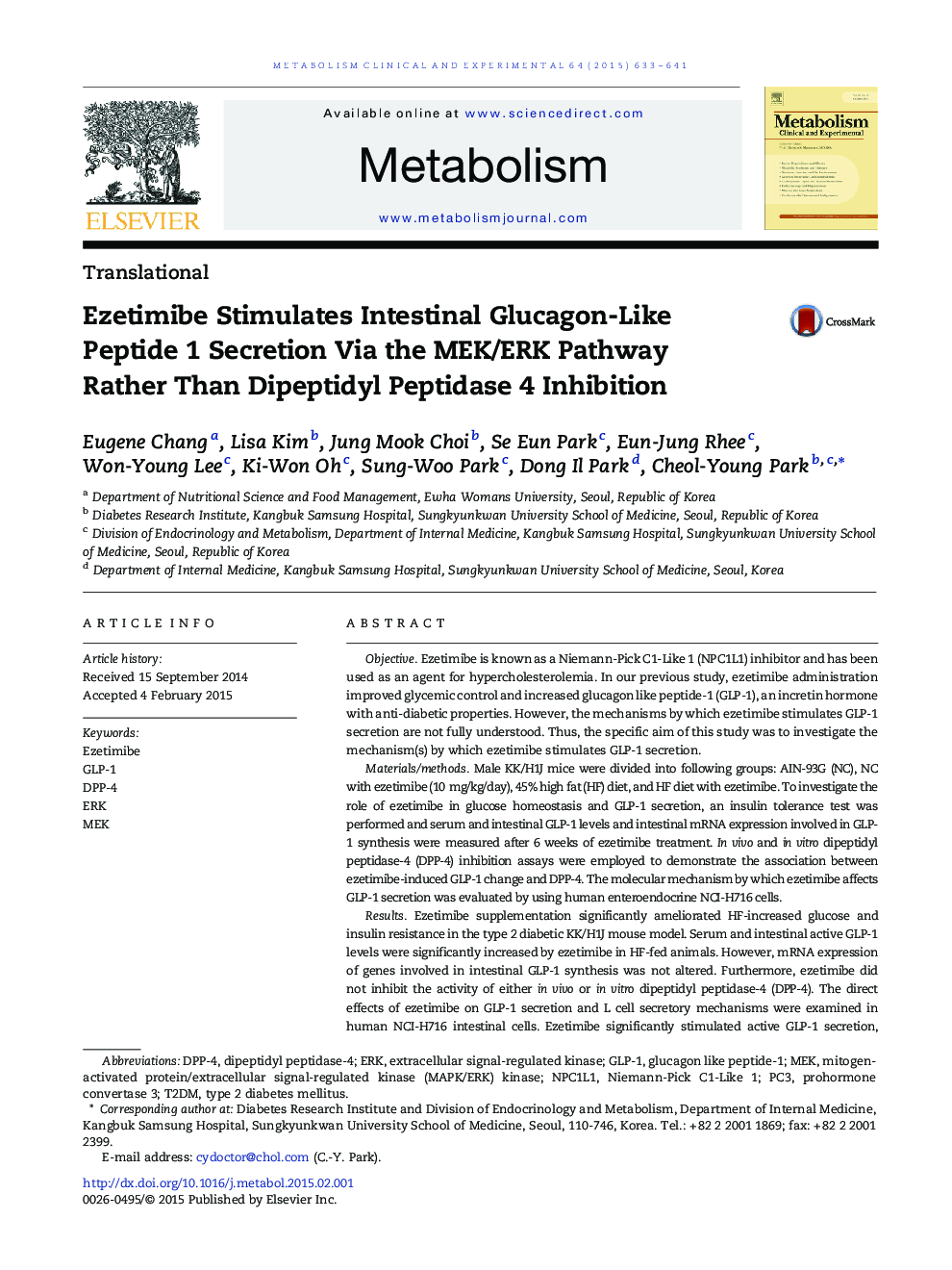| کد مقاله | کد نشریه | سال انتشار | مقاله انگلیسی | نسخه تمام متن |
|---|---|---|---|---|
| 2805641 | 1157068 | 2015 | 9 صفحه PDF | دانلود رایگان |

ObjectiveEzetimibe is known as a Niemann-Pick C1-Like 1 (NPC1L1) inhibitor and has been used as an agent for hypercholesterolemia. In our previous study, ezetimibe administration improved glycemic control and increased glucagon like peptide-1 (GLP-1), an incretin hormone with anti-diabetic properties. However, the mechanisms by which ezetimibe stimulates GLP-1 secretion are not fully understood. Thus, the specific aim of this study was to investigate the mechanism(s) by which ezetimibe stimulates GLP-1 secretion.Materials/methodsMale KK/H1J mice were divided into following groups: AIN-93G (NC), NC with ezetimibe (10 mg/kg/day), 45% high fat (HF) diet, and HF diet with ezetimibe. To investigate the role of ezetimibe in glucose homeostasis and GLP-1 secretion, an insulin tolerance test was performed and serum and intestinal GLP-1 levels and intestinal mRNA expression involved in GLP-1 synthesis were measured after 6 weeks of ezetimibe treatment. In vivo and in vitro dipeptidyl peptidase-4 (DPP-4) inhibition assays were employed to demonstrate the association between ezetimibe-induced GLP-1 change and DPP-4. The molecular mechanism by which ezetimibe affects GLP-1 secretion was evaluated by using human enteroendocrine NCI-H716 cells.ResultsEzetimibe supplementation significantly ameliorated HF-increased glucose and insulin resistance in the type 2 diabetic KK/H1J mouse model. Serum and intestinal active GLP-1 levels were significantly increased by ezetimibe in HF-fed animals. However, mRNA expression of genes involved in intestinal GLP-1 synthesis was not altered. Furthermore, ezetimibe did not inhibit the activity of either in vivo or in vitro dipeptidyl peptidase-4 (DPP-4). The direct effects of ezetimibe on GLP-1 secretion and L cell secretory mechanisms were examined in human NCI-H716 intestinal cells. Ezetimibe significantly stimulated active GLP-1 secretion, which was accompanied by the activation of mitogen-activated protein/extracellular signal-regulated kinase kinase (MEK)/extracellular signal-regulated kinase (ERK). Ezetimibe-increased GLP-1 secretion was abrogated by inhibiting the MEK/ERK pathway with PD98059.ConclusionThese findings suggest a possible novel biological role of ezetimibe in glycemic control to stimulate intestinal GLP-1 secretion via the MEK/ERK signaling pathway.
Journal: Metabolism - Volume 64, Issue 5, May 2015, Pages 633–641